
Satya Nadella replaces Bob Muglia as president of Microsoft's Server and Tools Business
Today, Microsoft began the big, rumored management shakeup with the appointment of Satya Nadella as president of the Server and Tools Business. Supposedly, Microsoft CEO Steve Ballmer is putting more engineering-focused employees in key, management positions. Nadella replaces Bob Muglia, who essentially was fired last month by Ballmer; Muglia will remain during a transition period through summer.
Like Muglia, Nadella is a long-time Microsoft employee, since 1992, and he more recently oversaw engineering efforts within Microsoft's perennially, money-losing Online Services Business unit. It's an interesting move, to sack the leader who helped build up the highly successful and profitable Server and Tools Business unit and replace him with someone working, since 2007, in a flailing group. OSB has been flapping like a chicken trying to fly above Google for years. Microsoft lags far behind its rival in search share, and the Online Services Business loses money quarter after quarter. It's a money pit.
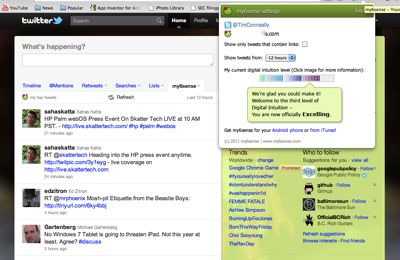
my6sense launches Chrome extension to filter crappy tweets
Israel-based software maker my6sense has branched out from its mobile app roots and launched a Chrome browser extension for Twitter on Wednesday. Like the my6sense app for iOS and Android, the Chrome browser extension strives to reduce the spam and irrelevant content for Twitter users who find themselves following just a bit too many people.
How many people can you follow on Twitter and not lose information? It's been a subject of discussion for years, which prompted Twitter to launch list-based filtering back in 2009. Indeed, there are many third-party applications to help users organize and filter the potential Twitter overload.

The PC era is over
Yesterday, I chuckled reading the many posts about IDC fourth-quarter smartphone shipment data. As many writers observed, manufacturers shipped more smartphones than PCs -- 100.9 million versus 92.1 million, respectively. This turnabout was inevitable, and it is more than hugely symbolic. The cloud-connected mobile device era has dawned.
Frankly, I shouldn't need to declare that the PC era is over, but I expect sharp criticism from many Betanews readers in comments. I say to you: End the denial, and look ahead rather than behind. The PC's decline is inevitable, as was the mainframe's. It was never a matter of if but when, and it's a process still underway that will take years to complete.

Daily Deal sites: passing fad or future of shopping?
Wednesday, Mobile loyalty card app CardStar announced it has become the first app of its ilk to partner with Groupon, the extremely hot daily deal service, and users of its iPhone and Android apps in more than 160 cities will have location-specific access to Groupon deals.
CardStar lets users scan or manually enter all those shopping rewards cards into a single app, and then their smartphone's screen can be scanned at the cash register when they check out. Generally speaking, the app focuses on cards that users already have or ones that they get separately from CardStar. But with this new version of the software, users can now sign up for new cards directly through the app, and with the Groupon deal, membership isn't even required to view the daily deals.

Toward a New American Ingenuity: CEA's Gary Shapiro
As the world slowly recovers from years of economic crises, the United States remains in peril with both a massive deficit and the lingering unemployment problem. This year, Consumer Electronics Association President Gary Shapiro has emerged as one of the few industry organization leaders who has put the health of the U.S. economy as his primary focus, and he's done so with great conviction.
In his CES 2011 keynote, Shapiro took the stage to sharply criticize Washington's trade policies, saying they discourage innovation and encourage senseless overspending.
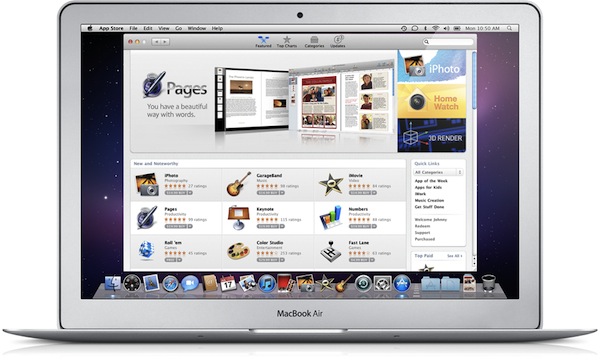
Believe the rumors: Apple will soon stop selling software at its retail stores
In December I asked: "Should Apple stop selling software in its retail stores?" I reasoned that the Mac App Store greatly diminished the need for Apple retail stores to carry boxed software, which takes up valuable shelf space. In early January, Apple released the Mac App Store, which is part of Mac OS X 10.6 (aka Snow Leopard). I expected Apple would soon go all digital, removing packaged software from its stores. Late last night, MacRumors claimed Apple is preparing to do just that: "Based on what we've heard from our sources, however, Apple is planning on making the move to all digital sooner than expected at their retail stores. Apple is working towards eliminating boxed software and presumably focusing sales through the Mac App Store."
I can't attest whether or not the rumor is true, or vouch for MacRumors sourcing, but it's what I expected Apple to do, which is why I asked the question. Not everyone agrees this is the right move. In December, Stephen Baker, NPD's vice president of industry analysis told me that "only 43 percent of online software buyers want a digital download only; 30 percent want a box and 22 percent want a download and a box." He didn't see how Apple could meet consumer preferences by going digital download only. I see it differently: 43 percent represents a helluva lot of people, and right now Apple only needs to be concerned with Mac owners.
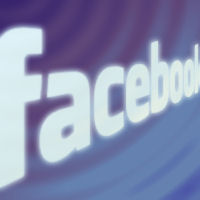
Facebook moves into Sun's old digs, Google expands into LA
Both Facebook and Google announced expansion plans on Tuesday, with the social networking site moving into the former headquarters of Sun Microsystems, and the search engine opening new offices near Los Angeles. The moves likely indicate the tech sector is poised for a recovery as the economy as a whole rebounds.
Few companies have been as resistant to the economic downturn as Facebook. Just two years ago, the company moved to its current headquarters in Palo Alto, Calif. But with a workforce increasing at a 50% annual rate, moving to Sun's nine-building campus in nearby Menlo Park makes sense.

Gladinet Cloud Desktop 3.0 brings multiple online storage services together on your PC
Gladinet has announced the release of version 3.0 of Gladinet Cloud Desktop, a tool for accessing various online cloud storage providers through Windows. Version 3.0 introduces some new features, including a new Cloud Sync Folder for Professional users, as well as a completely redesigned interface designed to make the process simpler and more intuitive.
Gladinet Cloud Desktop allows end users to access a number of popular online cloud storage providers, including Google Docs, Windows Live Skydrive, Box.net and Amazon S3 storage, through a single drive in Windows itself. Each service is allocated its own folder within the specially created My Gladinet Storage drive and acts like any other folder, making it easy to access or copy files to and from each storage provider.
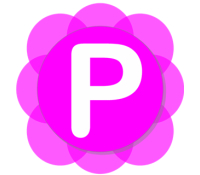
Pamela will record your Skype calls and voicemail
Skype is a great tool for making free and low-cost calls using your computer, but there are two major features missing: voicemail and the ability to record your calls for whatever reason. Sure, you can purchase a call plan for access to voicemail, but why do that when you can get both features for free?
Pamela Basic is a cut-down version of Skype recording software, but it still allows you to record up to 15 minutes of a Skype conversation plus add voicemail functionality to Skype for free. There's also a custom voice-recording tool that can be used outside of Skype to record whatever it is you're saying or listening too.
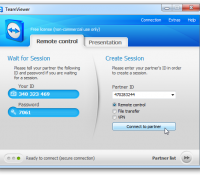
Take remote control of your PC with TeamViewer 6
The concept of taking remote control of one computer from another is nothing new -- NetMeeting predates Windows 98 -- but the goalposts keep changing and one version of Windows won't necessarily play nice with another, never mind non-Windows platforms.
TeamViewer eliminates all these problems in one sweep, offering a single solution for sharing presentations, offering remote support or simply dialling home to retrieve a forgotten file or set the DVR. It works across Windows, Macintosh and Linux systens, and can even be accessed via a web browser or mobile device. Best of all, it's free for personal use.

Alcatel-Lucent introduces componentized, software-defined network hardware
The shrinking cell site is definitely a theme this week, as mobile infrastructure companies make their big announcements before the Mobile World Congress in Barcelona. International telecommunications company Alcatel-Lucent on Monday, for example, debuted LightRadio, a software-defined mobile radio and distributed base station architecture with virtualized wireless controllers and gateways.
At an event in London yesterday, Alcatel-Lucent unveiled the lightRadio Cube, a tiny base station which includes a baseband radio paired with a Freescale system-on-a-chip, with signal amplifiers and passive cooling mechanisms in a single enclosure a little bigger than a Rubik's cube. This item is the cornerstone of the lightRadio network.
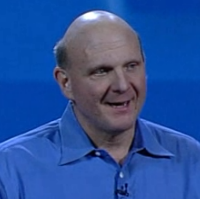
Steve Ballmer's change of heart is touching, but it's five years too late
S-o-o-o-o, if the unnamed sources cited by Bloomberg are to be believed, Microsoft's CEO wants to shakeup management by shaking out the sales and marketing guys and bringing in more technically-oriented leadership. Oh yeah? Then why has Microsoft lost so many technically-savvy managers over the past 12 months or so -- including Robbie Bach, Bob Muglia and Ray Ozzie, all of which got Steve Ballmer's boot out the door? Then there is Ballmer, who started this marketing management madness in a September 2005 reorganization. That's right, Ballmer is responsible for placing so many sales and marketing execs in key management positions and allowing them to appoint others.
According to the Bloomberg story, by reporter Dina Bass, Ballmer "plans to extend a management shake-up aimed at adding senior product executives with an engineering background." Bass is a veteran reporter who has covered Microsoft for many years, and she typically has impeccable sourcing. Her report is believable. The questions: Why? Why now?

Sprint doubles down on Android, 4G in 2011
While declining to be specific, Sprint executives on Monday said 70 percent of the phones the carrier will release in 2011 will run on Google's mobile operating system, and at least 20 of them will be 4G-capable.
Sprint was one of the first carriers to commit to 4G, announcing its plans to use WiMAX back in 2006, although the rollout did not occur in earnest until last year. The company believes its commitment to 4G is one of the reasons the carrier was able to stop hemorrhaging customers in 2010.

To shrink cell sites, Ericsson unveils hybrid antenna/radio unit
Wireless telecommunications leader Ericsson today announced a new cellular radio solution called AIR (antenna integrated radio) which combines the radio unit with the antenna unit for simpler installation and integration into wireless networks, with the added bonus of decreased power consumption.
Generally speaking, the smaller a company can make their cell sites, the better. With smaller parts, more parts can be added, and obtaining permits and zoning clearance becomes just a little easier. This is an issue Ericsson has been confronting head on with its cell site equipment for the past few years.

Gartner: More than half of IT organizations deploy open-source software
Uh-oh, Microsoft, perhaps it's time for a new "Get the Facts" campaign. You told the world that open-source software really wasn't cheaper or as easy to manage as commercial products. Well, only about half of IT organizations believed you.
Today, Gartner released findings that more than one-half of IT organizations use open-source software, based on a survey of 547 IT organizations from 11 countries. To my surprise, the survey data isn't exactly fresh, having been conducted in July and August 2010. Well, it's not like most companies change platforms very often, so perhaps six months is fresh enough. Gartner refers to open-source software as OSS.



